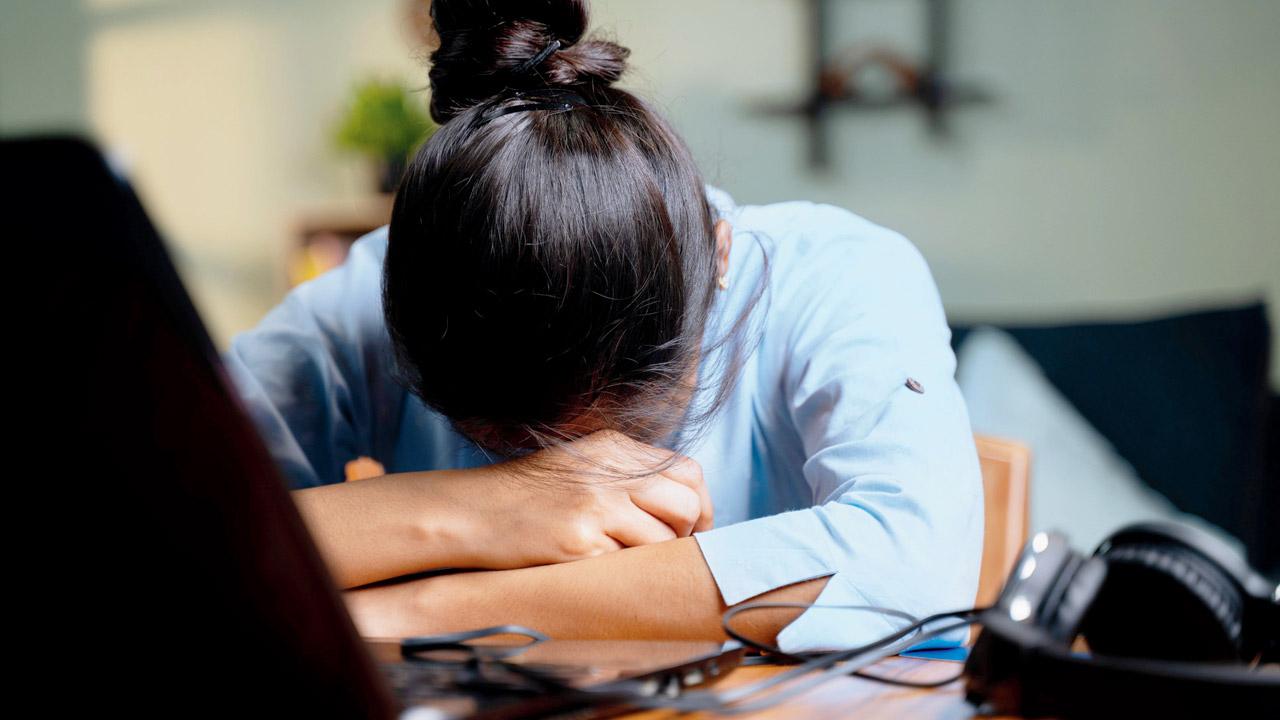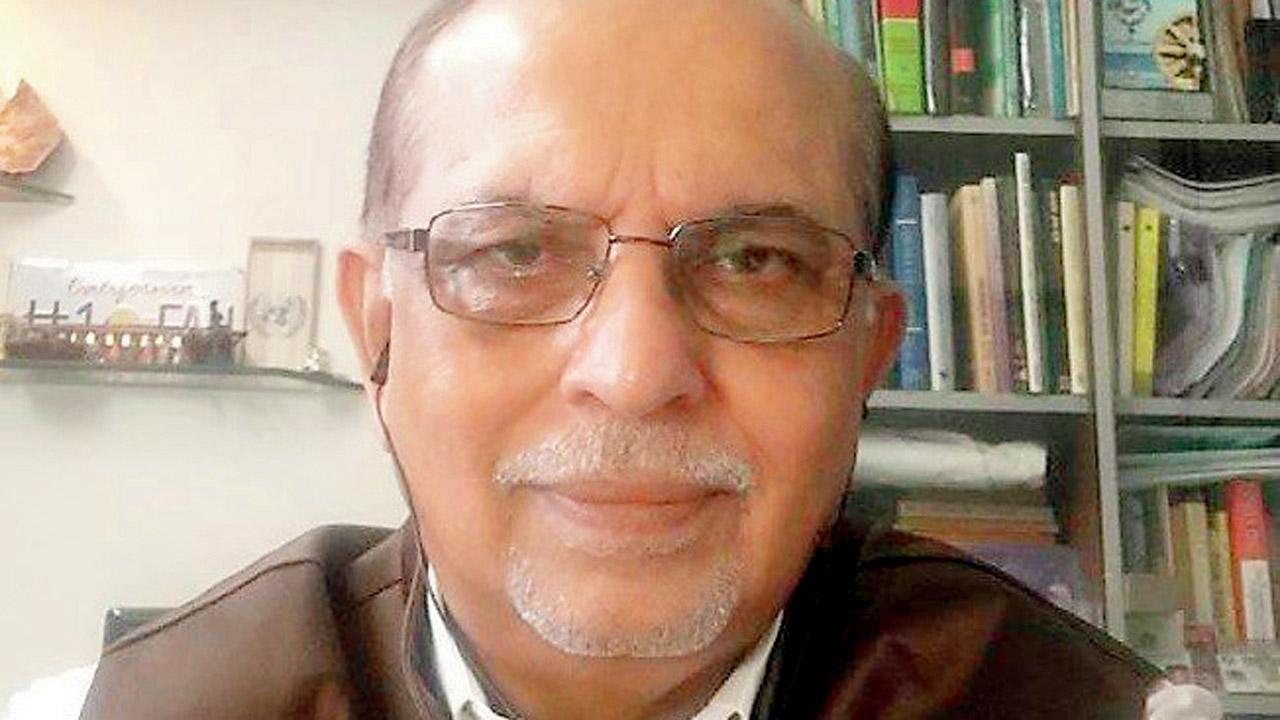Experts say it is completely normal to have fatigue for some time after a viral infection

People with fatigue syndrome sometimes experience headaches, have trouble concentrating
Lately, a large number of people who were treated for Covid-19 or viral infection are experiencing fatigue syndrome that slows down recovery, said health experts. Viruses that have been dormant can cause inflammation of the nerves leading to symptoms like chronic tiredness, bodyache, poor attention, irritability, etc. People should, however, not panic, they said, adding that light exercises and gradual return to your daily routine would help.
The symptoms range from chronic tiredness or sleepiness to headaches, dizziness, sore, achy or weak muscles, slow reflexes and responses, poor decision-making skills, moodiness and irritability, etc., they added. Dr Wiqar Shaikh, professor of Medicine at Grant Medical College and Sir JJ Group of Hospitals, defined fatigue as an overall feeling of tiredness or exhaustion. He said it is completely normal to have fatigue for some time after a viral infection. However, post-viral fatigue (PVF) can sometimes linger on for weeks or even months.
The main symptom of PVF is exhaustion, he said, adding that people might also have trouble concentrating or memory problems, sore throat, headache, swollen lymph glands and muscle and/or joint pain. He said the common viruses causing PVF are Epstein-Barr, Herpes, HIV AIDS, flu, pneumonia and recently Coronavirus. Dr Shaikh said long Covid-19 is an important cause of PVF today, and it can affect people of all ages.

Symptoms of fatigue syndrome range from chronic tiredness to slow reflexes and responses. Representation pic
He cited an article in ‘Viral Immunology’ journal from the Baylor College of Medicine, Texas, the US, which concluded that after a viral infection, 31 per cent of people experienced PVF for over six months, with a duration extending up to five years. It also mentioned that women under 50 years of age were more likely to suffer from PVF.
Latent viruses in the body or an increase in molecular substances called cytokines that promote inflammation of tissues and nerves could cause PVF, Dr Shaikh said. Several studies showed that cytokines like GMCSF, interferon and interleukins were significantly elevated in PVF, he said.
Dr Shaikh said there are no definitive tests to diagnose PVF, and it is primarily a doctor’s judgement based on symptoms. People must seek medical help if they have any PVF symptoms, he said. The treatment focuses on managing symptoms, which includes using a calendar or organiser to help with memory and concentration issues, reducing daily activities to conserve energy and massage therapy, he added.
“SARS-CoV-2, which causes Covid-19, has affected billions of people, and a large number of them complain about continued fatigue. Later parts of Covid-19 and long Covid-19 are both associated with the ensuing weeks or even months of ‘recovery’. Almost 30 per cent of Covid-19 patients and 80 per cent of long-Covid-19 patients go on to develop fatigue syndrome. For some people with a severe infection, brain fog-like symptoms and pain can linger for weeks or months. It may last even after their infection clears up”, said Dr Subhash Hira, professor of Global Health at University of Washington-Seattle.

“While experts aren’t exactly sure what causes lasting fatigue and long Covid-19, some researchers say that the body’s natural response may be thrown off after it comes in contact with certain types of viruses. They believe fatigue from long Covid-19 is similar to the symptoms of a complex medical condition called myalgic encephalomyelitis/chronic fatigue syndrome. The linkage of fatigue syndrome with pre-existing mental illnesses, such as depression, paranoia, substance dependence, etc., is being frequently seen to accentuate symptoms and signs of both conditions,” he added.
How to manage fatigue?
Dr Hira said, “One should first accept that fatigue syndrome is a real illness associated with Covid-19. People should try to get a good night’s sleep, do relaxation exercises, like meditation or yoga, light exercise, try to stay active, identify and avoid energy-draining activities, keep hydrated, and eat foods that give energy. People should consult a doctor if fatigue lasts beyond two-three weeks or they have other symptoms.”
Don’t be in hurry to recover
“Covid-19 is followed by fatigue syndrome and the duration of recovery is variable. Adequate rest, sleep and good nutrition are essential. One should slowly resume daily activities, including work from home and take breaks. There is no need to be anxious about quick recovery. Increase the pace of activities respecting your body’s signals. Over a variable period, people will start feeling good and if they don’t, it is advisable to consult the physician,” said Dr Ketan Vagholkar, professor of Surgery at DY Patil Medical College.
Auto-limiting symptoms
“In chronic fatigue syndrome (CFS), patients feel tiredness that increases after physical or mental activities. We are observing CFS among people who recovered from Covid-19. It’s an auto-limiting symptom that becomes alright on its own after a certain period of time,” said Dr Santosh Bansode, HoD, Emergency Medicine, Wockhardt Hospitals, Mumbai Central.
“Many patients have to resume work 7-14 days after testing positive for Covid-19, but as the tiredness continues, they face difficulties in travelling and working. Usually, it settles in two-four weeks, but it may take longer in some patients. If anyone has CFS symptoms, they shouldn’t panic or worry. If there’s breathlessness, people should immediately consult a doctor,” Dr Bansode said.
How to overcome chronic fatique at home
>> Eat a high-protein diet
>> Drink lots of water to stay hydrated
>> Try breathing exercises
>> Try light exercises
>> Practise mental relaxation techniques
>> Keep a positive mindset and attitude
2 weeks
Min duration for which fatigue symptoms last
 Subscribe today by clicking the link and stay updated with the latest news!" Click here!
Subscribe today by clicking the link and stay updated with the latest news!" Click here!










